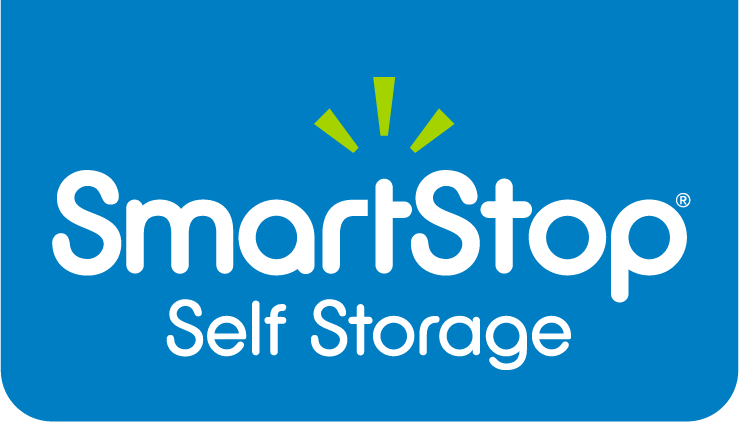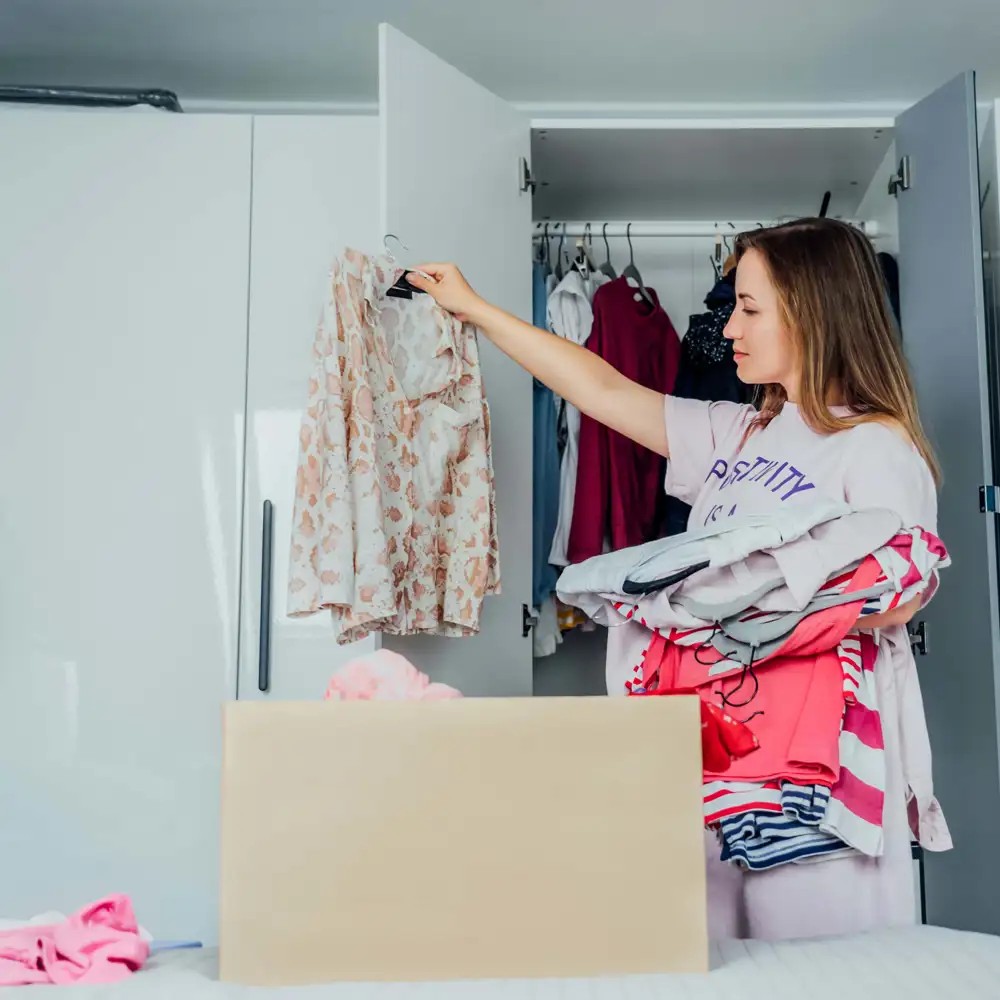Whether you’re a homeowner, renter, student or small business owner, self storage can be an invaluable solution when space runs short. With a wide range of unit sizes, climate-controlled options and flexible month-to-month rentals, today’s facilities make it easy to find storage that fits your needs and budget, without the commitment of a long-term contract.
But using a storage unit isn’t just about finding the right size and moving your belongings in. There’s an art to doing it safely and efficiently. Every facility, no matter which company you choose, has guidelines in place to protect both your items and those of other renters. Some of these rules are common sense, while others might surprise even experienced users. Here’s a look at the essential self-storage do’s and don’ts to help you make the most of your space and keep everything secure.
| Note: Rules may vary between different storage facilities and providers. Check with your local self-storage facility for the most accurate breakdown of permitted and prohibited items and practices. |
- Do Store Permitted Items — Including Vehicles
- Do Split the Cost With Someone Else
- Do Plan for Easy Access
- Do Check for Special Offers or Discounts
- Do Bring Your Own Lock
- Do Use an Inventory Tracking System
- Do Protect Items From Moisture and Pests
- Do Visit Your Storage Unit Regularly
- Don’t Store Perishables, Flammables or Other Prohibited Items
- Don’t Use Your Storage Unit as a Workspace
- Don't Use Self Storage for Irreplaceable or Priceless Items
- Don't Work on Your Car in Your Storage Unit
- Don't Live in Your Storage Unit
- Don't Overpack or Stack Unsafely
- Don't Forget to Secure Large or Heavy Items
1. Do Store Permitted Items — Including Vehicles
When using a self-storage unit, always ensure that you’re storing items that the facility allows. While different storage companies may have different rules, most will let you store everyday household items, furniture and personal belongings. At SmartStop Self Storage, examples of permitted items include:
- Appliances (like ovens, stoves, refrigerators, washing machines, dryers, etc.)
- Bed frames and headboards
- Books
- Collectibles (like magazines, artwork, coin collections, etc.)
- Dressers
- Electronics
- Furniture (chairs, tables, sofas, room dividers, organizers, etc.)
- Home decor
- Lamps
- Lawn equipment (in working condition, with any oil/fuel drained beforehand)
- Mattresses
- Musical instruments
- Sports equipment
- Tools and gear
SmartStop’s units range in size from storage lockers to small, medium and large units, allowing you to find the right unit for your needs. Storage lockers are perfect for documents, files and seasonal clothing, while storage units can hold an entire closet or bedroom’s contents, depending on the size.
You may not have known that you can also keep vehicles in a storage unit, including:
In other words, if you have an extra car you’re no longer driving, a collectible car you want to protect from harsh weather, or an RV or boat you need to store during the off-season, a storage unit can be an affordable way to keep your vehicle safe. You can choose from outdoor covered/uncovered and indoor options, depending on your needs.
2. Do Split the Cost With Someone Else
For college students and young adults living with housemates, budgeting is often a top priority. If you need just a bit of additional space but can’t justify renting an entire unit for yourself, consider sharing a unit with a friend or roommate — or even a few. As long as you’re complying with other facility rules, there’s no issue with teaming up and splitting the cost of a unit between multiple trusted friends. In the best-case scenario, it’s a win-win for everyone involved: you pay less per month but get exactly the amount of storage space you need. On the other hand, sharing a space comes with additional considerations and potential downsides. Here are a few tips to help you avoid disputes:
- Come up with a clear, agreed-upon way of dividing the space.
- Draft a written agreement detailing how you will split the rent.
- Only share a unit with friends or roommates you trust.
3. Do Plan for Easy Access
When storing your belongings, keep items you may need more frequently toward the front of the unit. Ensure that you maintain a clear pathway that allows you to access all of your belongings when you need them. We also recommend using clear plastic storage containers with tight-fitting lids that make it easy to identify the contents of a bin. For a complete list of tips to help you organize or reorganize your storage unit for maximum accessibility, explore our blog.
| Tip: Use blue painter’s tape or duct tape to clearly delineate a walking path on the floor of your storage unit. |
4. Do Check for Special Offers or Discounts
Many storage facilities offer promotional rates for new renters or discounts for long-term commitments. It’s always a good idea to ask about any ongoing promotions that could save you money or to check for deals online. Remember, there aren’t rules that limit you to renting only one storage unit at a time. If you need more space than what your current unit offers — or if you’d benefit from having multiple smaller units — wait until the best deal becomes available.
5. Do Bring Your Own Lock
Storage units don’t typically come with locks, though you can purchase them at the facility if you don’t have one. At SmartStop, we recommend using a disc lock (not a padlock), which is shaped like a disc rather than a “U.” Unlike padlocks, disc locks have a closed shackle, making them harder to cut with a pair of bolt cutters and providing more security for your stored items.
6. Do Use an Inventory Tracking System
Keeping track of what’s inside your storage unit is one of the best ways to stay organized and avoid unnecessary stress later. A reliable inventory system ensures you always know what’s stored where — saving you from digging through boxes or accidentally repurchasing items you already own.
- Start with a master list. Create a simple spreadsheet or use a notebook to log each box and its contents. Include box numbers, categories (like holiday decor or kitchenware), and short item descriptions.
- Label boxes clearly and consistently. Use waterproof labels or printed tags that correspond to your inventory list. Numbering or color-coding boxes by category can make retrieval much faster.
- Add photos for reference. Snap quick pictures of the items inside each box or of particularly valuable belongings. This visual record is helpful for insurance claims and remembering item conditions.
- Group and map your layout. Store similar items together — for example, keeping all camping gear on one shelving unit — and make a simple map or diagram of your unit’s layout.
- Keep your list updated. Each time you visit your unit, add or remove items from your inventory log so it remains accurate. Small updates now prevent confusion later.
- Leverage digital tools. Many self-storage facilities, including SmartStop, offer online or app-based account features that make it easy to track, label and manage your items remotely. You can download the SmartStop app from the Google Play Store or Apple App Store — or use the QR code below.

7. Do Protect Items From Moisture and Pests
Even in the cleanest storage facilities, moisture and pests can find their way in if your items aren’t properly protected. To safeguard your belongings, start by choosing a climate-controlled unit, especially if you’re storing temperature- or humidity-sensitive items like wood furniture, fabrics, electronics or photographs. Before moving anything in, line the floor with a plastic tarp or use raised pallets to keep boxes off the ground in case of condensation or leaks. Swap cardboard for plastic storage bins with airtight lids, and tuck moisture absorbers or silica gel packets inside boxes for added protection.
Pest prevention is equally important. Never store food, scented candles or organic materials that could attract insects or rodents. Clean every item thoroughly before storage — particularly upholstered furniture and outdoor gear — to remove crumbs, dirt and residues that can draw pests. During each visit, check corners, seams and entry points for droppings, gnaw marks or webs, and report any signs of activity to facility staff immediately.
8. Do Visit Your Storage Unit Regularly
Out of sight shouldn’t mean out of mind — visiting your storage unit regularly is essential to maintaining it. A quick check every couple of months can help you catch problems early, like water intrusion, pest activity or shifting stacks that could cause damage. During each visit, open a few boxes to confirm everything is still dry and intact, and inspect furniture covers or plastic bins for signs of mildew or condensation. If you use moisture absorbers or pest traps, replace them as needed to keep them effective.
Regular visits are also a great time to reorganize and refresh your space. Here are some things to do:
- Swap out seasonal items
- Adjust your layout for easier access
- Update your inventory list
- Test your lock
9. Don’t Store Perishables, Flammables or Other Prohibited Items
Only some kinds of items are permitted in a self-storage unit. Keeping prohibited items in your unit not only violates facility rules but it may also be illegal. In addition to the numerous liability issues associated with certain items, keeping any of the following in your unit may lead to your storage privileges being revoked and even legal trouble:
- Firearms and other weapons, which pose a significant liability risk for storage facilities
- Perishable food (like meat, dairy products, eggs, and raw produce), which attracts pests and mold
- Hazardous materials or dangerous substances, including acid, fireworks, sparklers, gasoline, kerosene, cooking oil, propane tanks, fertilizer and weed killer
- Anything in an aerosol, such as compressed air, hair spray, spray paint and cooking spray
- Living things, such as pets and plants
- Stolen goods
10. Don’t Use Your Storage Unit as a Workspace
While the idea of converting a storage unit into a private workspace or studio might seem like an appealing storage “hack,” it’s not allowed. Most facilities have strict rules that prohibit the use of units for purposes other than storage. This is due to a number of reasons, including fire safety concerns, ventilation issues and potential disturbances for neighboring renters. Additionally, using the unit as a workspace may violate local zoning regulations or the terms of your rental agreement. If caught, you may face fines or even eviction from the facility.
If you need a separate workspace, it’s better to explore other options — such as renting a dedicated studio or co-working space — to avoid any complications. Some SmartStop facilities across the U.S. and Canada even offer dedicated office spaces you can rent if you’re a small business or solopreneur.
11. Don't Use Self Storage for Irreplaceable or Priceless Items
Self storage isn’t the right place to keep valuable, irreplaceable or priceless items. While some storage facilities provide property protection (and if not, your belongings may be covered by your homeowner’s insurance), many facilities require that your total stored items not have a value greater than $5,000 unless you have written permission from the facility manager. Talk to your local facility if you’re looking to store antiques, jewelry, family heirlooms, high-end art or other one-of-a-kind, priceless items. Better yet, find an alternative way to store them, such as a home safe or bank safety deposit box.
| Note: It is not recommended to store money of any amount in your storage unit. |
12. Don't Work on Your Car in Your Storage Unit
Even though you’re allowed to store your vehicle in a storage unit, most facilities won’t allow you to work on your car due to liability reasons. Any and all vehicles you keep in a unit need to be operable — i.e., in working condition — before you bring them to the storage facility.
13. Don't Live in Your Storage Unit
It may seem like an unconventional solution to housing costs, but living in a storage unit is both dangerous and illegal. Storage facilities aren’t designed for habitation — there’s no proper ventilation, natural light, electricity, plumbing or heating. Living in a unit also goes against fire safety regulations, building codes and the terms of your rental agreement. If caught living in your storage unit, you may face eviction and even legal consequences. If you’d like to learn more, or if you’re seeking out community resources that can help you find legal housing, explore our blog on living in a storage unit.
14. Don't Overpack or Stack Unsafely
Overfilling your storage unit might seem efficient, but it can quickly lead to damaged items and unsafe conditions. Proper spacing and structure are key to maximizing space without creating hazards.
- Leave clear walkways. Always keep a small aisle down the center or side of your unit so you can move safely and access boxes in the back without shifting heavy stacks.
- Stack with weight in mind. Place heavier, sturdier boxes on the bottom and lighter, fragile ones on top. Avoid creating tall, unstable piles that can topple easily.
- Use shelving units when possible. Metal or heavy-duty plastic shelves help distribute weight evenly and make it easier to access items without restacking.
- Avoid pressing boxes against walls. Leave a few inches of space to promote airflow and prevent moisture buildup.
- Mind the ceiling height and structure. Keep stacks below shoulder height and away from light fixtures or sprinklers to prevent damage or obstruction.
- Repack damaged boxes. If a box shows signs of sagging or tearing, transfer items to a new container before it collapses and damages other belongings.
15. Don't Forget to Secure Large or Heavy Items
Bulky furniture, appliances and other oversized items need extra attention during storage, and securing them properly helps prevent injury or accidental damage to your other belongings. Here are some tips for large items:
- Disassemble when possible. Remove table legs, shelves or headboards to make items easier to stack, cover, and protect. Keep screws and hardware in labeled bags taped to the corresponding furniture piece.
- Use protective padding. Wrap furniture in moving blankets or padded covers to prevent scratches and dings. Avoid using plastic wrap directly on wood or leather, which can trap moisture.
- Strap items upright. Secure tall objects like bookcases, wardrobes or appliances with ratchet straps, rope or bungee cords to keep them from tipping over.
- Store heavy items against walls. Place weighty pieces near the back or along the sides of the unit to anchor your layout and reduce the risk of shifting.
- Avoid leaning items at an angle. Mirrors, mattresses or framed art should always be stored vertically and flat against a stable surface to prevent warping or breakage.
- Check stability during each visit. Give large items a gentle push to ensure nothing has loosened or shifted over time — then readjust straps or supports as needed.









